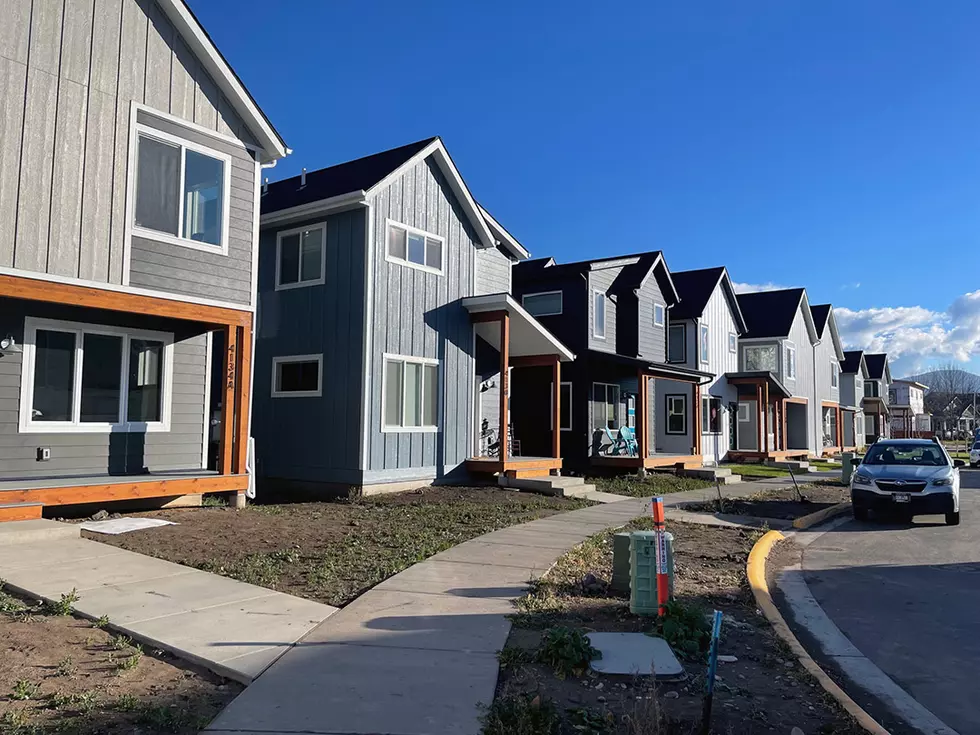
Missoula County to consider housing plan to boost supply, opportunities
With a shortage of housing opportunities across all income levels and escalating prices, the Missoula Consolidated Planning Board is recommending the county adopt a new housing action plan to address the issue.
The plan, created by consultants at ECONorthwest, would be the county's first official plan focused on boosting the region's housing stock. The metropolitan area currently needs another 2,500 units of housing to meet existing demand, the plan suggests.
“We believe this number has increased recently due to the Covid-19 effects,” said consultant Oscar Saucedo-Andrade. “The implications of this is that the growing demand that exists in Missoula County, couple with limited new construction of housing and rising development costs through labor and materials, has increased housing costs around the county.”
Over the past decade, housing costs in the Missoula area have doubled from roughly $200,000 in 2010 to the current median price of $420,000. In comparison, according to the report, wages have grown just 15% over that time and haven't kept pace with housing costs.
It comes down to supply and demand, and Missoula hasn't kept pace with the latter, according to ECONorthwest.
“There are simply more people trying to buy units in Missoula County than there are units available,” said consultant Lorelei Juntunen. “When you have a market that has a housing shortage, people have to compete even harder to get that limited good.”
The results have market-wide consequences. Those with money move up the income ladder by spending more on housing, even if doing so burdens them with greater costs. That crowds out others who may otherwise have bought a unit at that price point.
Juntunen said those at the lower end of the income spectrum are left out of the market entirely.
“When you're under-supplied, it's important to pay attention to folks at the bottom of the income spectrum, because those are the folks most impacted by the way the market is failing to function,” she said. “It also means developing strategies that add units across the market up and down the income spectrum.”
With supply and accessibility in mind, the proposed plan lays out a number of goals, and it recommends achieving those goals over the next three years. The recommendations range from removing regulatory barriers to disposing of public land for housing, or acquiring land for housing – something the city is already doing.
It also recommends programs to provide housing access for a greater number of people, and working with community partners and developers to secure housing resources.
“It takes time to add units to the market, and time to get to a place where you're fully addressing housing needs,” said Juntunen. “It's a three-year action plan with the goal of working out the kinks in the recommended actions over the near term.”
Many recommendations in the plan are currently in practice in the city, which adopted its housing plan two years ago. The city's efforts have included land acquisition, which the county plan suggests, and it saw the creation of an affordable housing trust fund.
The county plan suggests a possible city-county housing trust fund.
“We're going to get to a decision point on that,” said county planner Jordan Lyons. “We'll be working closely with commissioners to help them make an informed decision on which way they want to go on that.”
The Missoula City Council this year also authorized a study to review the number of short-term rentals and their impacts on the greater housing market. The county plan suggests a similar review, along with programs that provide down-payment assistance for home ownership.
“We also heard quite a lot about some of the limitations that both the city and county experience in trying to advance housing actions because of the limits of state and federal policy, and state and federal funding,” said Juntunen. “The idea here is to work with other Montana cities and counties to advocate for changes in housing policy to remove some of those barriers.”
The county has already connected with officials in Bozeman, which faces its own housing crisis. The two communities could begin preparing for the 2023 Legislature to advocate for change.
Coordinating with the City of Missoula and its partners could also help.
“I realize the city and county do things differently,” said Dave Loomis, a member of the Planning Board. “But given the scope of the issue, it should be a joint project. There's plenty of territory in the county that's going to be urbanized at some level, and we need to get that coordinated.”
